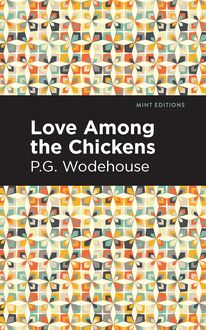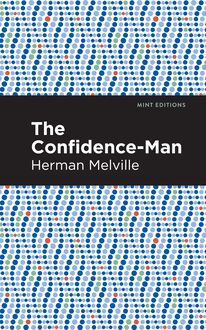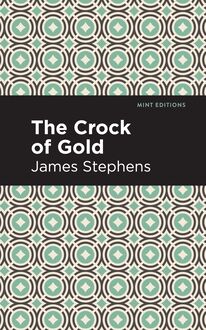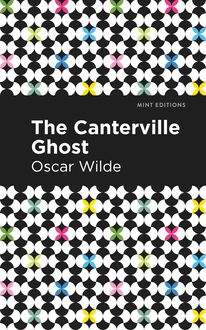-
 Univers
Univers
-
 Ebooks
Ebooks
-
 Livres audio
Livres audio
-
 Presse
Presse
-
 Podcasts
Podcasts
-
 BD
BD
-
 Documents
Documents
-
- Cours
- Révisions
- Ressources pédagogiques
- Sciences de l’éducation
- Manuels scolaires
- Langues
- Travaux de classe
- Annales de BEP
- Etudes supérieures
- Maternelle et primaire
- Fiches de lecture
- Orientation scolaire
- Méthodologie
- Corrigés de devoir
- Annales d’examens et concours
- Annales du bac
- Annales du brevet
- Rapports de stage
La lecture à portée de main
Vous pourrez modifier la taille du texte de cet ouvrage
Découvre YouScribe en t'inscrivant gratuitement
Je m'inscrisDécouvre YouScribe en t'inscrivant gratuitement
Je m'inscrisEn savoir plus
Vous pourrez modifier la taille du texte de cet ouvrage
En savoir plus

Description
While they are discussing the possible illnesses they may have, Jerome, Harris, and George all realize they suffer from the same thing—working too much. Upon the realization, the three best friends decide that they must go on a vacation. After rejecting the ideas of a sea trip or country stay, because Jerome doesn’t like the sea, and Harris finds the country to be dull, the men decide on a boat trip. With their bags packed and with the company of Jerome’s dog, Montmorency, the friends set off on a boat traveling along the Thames River. They pass notable landmarks and muse about them, questioning their importance, appearance, and origins. Memories are recalled and shared with embellishments. The three men enjoy each other’s company until the vacation takes turns that they could never expect. With unpredictable weather, comedic pitfalls, and wild humor, no outcome is impossible on this chaotic vacation. Facing their own shortcomings, flaws, and the uncontrollable weather, Jerome, Harris, and George must work together to remain in good spirits and find the silver linings so they can still enjoy their vacation.
Though originally intended to be a travel guide, the witty jokes, humorous diversions, and realistic characters portrayed in Three Men in a Boat stole the focus of the novel. Based off author Jerome K. Jerome’s real-life experiences, Three Men in a Boat is a comedy that has stood the test of time. With undated jokes and hilarity, Jerome’s comedic work of escapism, Three Men in a Boat, remains to seem fresh and witty over one hundred years later.
Three Men in a Boat is brought back to life with a modern font and a new, eye-catching design. This classic comedy is an essential to any fun collection. Jerome K. Jerome’s Three Men in a Boat offers a short escape from reality and entertainment from even the most unexpected adventures.
Sujets
Informations
| Publié par | Mint Editions |
| Date de parution | 01 décembre 2020 |
| Nombre de lectures | 0 |
| EAN13 | 9781513272467 |
| Langue | English |
| Poids de l'ouvrage | 1 Mo |
Informations légales : prix de location à la page 0,0500€. Cette information est donnée uniquement à titre indicatif conformément à la législation en vigueur.
Extrait
Three Men in a Boat
Jerome K. Jerome
Three Men in a Boat was first published in 1889.
This edition published by Mint Editions 2020.
ISBN 9781513267463 | E-ISBN 9781513272467
Published by Mint Editions®
minteditionbooks.com
Publishing Director: Jennifer Newens
Design & Production: Rachel Lopez Metzger
Typesetting: Westchester Publishing Services
C ONTENTS Chapter 1 Chapter 2 Chapter 3 Chapter 4 Chapter 5 Chapter 6 Chapter 7 Chapter 8 Chapter 9 Chapter 10 Chapter 11 Chapter 12 Chapter 13 Chapter 14 Chapter 15 Chapter 16 Chapter 17 Chapter 18 Chapter 19
Chapter 1
T HREE INVALIDS .—S UFFERINGS OF G EORGE AND H ARRIS .—A VICTIM TO ONE HUNDRED AND SEVEN FATAL MALADIES .—U SEFUL PRESCRIPTIONS .—C URE FOR LIVER COMPLAINT IN CHILDREN .—W E AGREE THAT WE ARE OVERWORKED , AND NEED REST .—A WEEK ON THE ROLLING DEEP ?—G EORGE SUGGESTS THE R IVER .—M ONTMORENCY LODGES AN OBJECTION .—O RIGINAL MOTION CARRIED BY MAJORITY OF THREE TO ONE .
T here were four of us—George, and William Samuel Harris, and myself, and Montmorency. We were sitting in my room, smoking, and talking about how bad we were—bad from a medical point of view I mean, of course.
We were all feeling seedy, and we were getting quite nervous about it. Harris said he felt such extraordinary fits of giddiness come over him at times, that he hardly knew what he was doing; and then George said that he had fits of giddiness too, and hardly knew what he was doing. With me, it was my liver that was out of order. I knew it was my liver that was out of order, because I had just been reading a patent liver-pill circular, in which were detailed the various symptoms by which a man could tell when his liver was out of order. I had them all.
It is a most extraordinary thing, but I never read a patent medicine advertisement without being impelled to the conclusion that I am suffering from the particular disease therein dealt with in its most virulent form. The diagnosis seems in every case to correspond exactly with all the sensations that I have ever felt.
I remember going to the British Museum one day to read up the treatment for some slight ailment of which I had a touch—hay fever, I fancy it was. I got down the book, and read all I came to read; and then, in an unthinking moment, I idly turned the leaves, and began to indolently study diseases, generally. I forget which was the first distemper I plunged into—some fearful, devastating scourge, I know—and, before I had glanced half down the list of “premonitory symptoms,” it was borne in upon me that I had fairly got it.
I sat for awhile, frozen with horror; and then, in the listlessness of despair, I again turned over the pages. I came to typhoid fever—read the symptoms—discovered that I had typhoid fever, must have had it for months without knowing it—wondered what else I had got; turned up St. Vitus’s Dance—found, as I expected, that I had that too,—began to get interested in my case, and determined to sift it to the bottom, and so started alphabetically—read up ague, and learnt that I was sickening for it, and that the acute stage would commence in about another fortnight. Bright’s disease, I was relieved to find, I had only in a modified form, and, so far as that was concerned, I might live for years. Cholera I had, with severe complications; and diphtheria I seemed to have been born with. I plodded conscientiously through the twenty-six letters, and the only malady I could conclude I had not got was housemaid’s knee.
I felt rather hurt about this at first; it seemed somehow to be a sort of slight. Why hadn’t I got housemaid’s knee? Why this invidious reservation? After a while, however, less grasping feelings prevailed. I reflected that I had every other known malady in the pharmacology, and I grew less selfish, and determined to do without housemaid’s knee. Gout, in its most malignant stage, it would appear, had seized me without my being aware of it; and zymosis I had evidently been suffering with from boyhood. There were no more diseases after zymosis, so I concluded there was nothing else the matter with me.
I sat and pondered. I thought what an interesting case I must be from a medical point of view, what an acquisition I should be to a class! Students would have no need to “walk the hospitals,” if they had me. I was a hospital in myself. All they need do would be to walk round me, and, after that, take their diploma.
Then I wondered how long I had to live. I tried to examine myself. I felt my pulse. I could not at first feel any pulse at all. Then, all of a sudden, it seemed to start off. I pulled out my watch and timed it. I made it a hundred and forty-seven to the minute. I tried to feel my heart. I could not feel my heart. It had stopped beating. I have since been induced to come to the opinion that it must have been there all the time, and must have been beating, but I cannot account for it. I patted myself all over my front, from what I call my waist up to my head, and I went a bit round each side, and a little way up the back. But I could not feel or hear anything. I tried to look at my tongue. I stuck it out as far as ever it would go, and I shut one eye, and tried to examine it with the other. I could only see the tip, and the only thing that I could gain from that was to feel more certain than before that I had scarlet fever.
I had walked into that reading-room a happy, healthy man. I crawled out a decrepit wreck.
I went to my medical man. He is an old chum of mine, and feels my pulse, and looks at my tongue, and talks about the weather, all for nothing, when I fancy I’m ill; so I thought I would do him a good turn by going to him now. “What a doctor wants,” I said, “is practice. He shall have me. He will get more practice out of me than out of seventeen hundred of your ordinary, commonplace patients, with only one or two diseases each.” So I went straight up and saw him, and he said:
“Well, what’s the matter with you?”
I said:
“I will not take up your time, dear boy, with telling you what is the matter with me. Life is brief, and you might pass away before I had finished. But I will tell you what is not the matter with me. I have not got housemaid’s knee. Why I have not got housemaid’s knee, I cannot tell you; but the fact remains that I have not got it. Everything else, however, I have got.”
And I told him how I came to discover it all.
Then he opened me and looked down me, and clutched hold of my wrist, and then he hit me over the chest when I wasn’t expecting it—a cowardly thing to do, I call it—and immediately afterwards butted me with the side of his head. After that, he sat down and wrote out a prescription, and folded it up and gave it me, and I put it in my pocket and went out.
I did not open it. I took it to the nearest chemist’s, and handed it in. The man read it, and then handed it back.
He said he didn’t keep it.
I said:
“You are a chemist?”
He said:
“I am a chemist. If I was a co-operative stores and family hotel combined, I might be able to oblige you. Being only a chemist hampers me.”
I read the prescription. It ran:
“1 lb. beefsteak, with
1 pt. bitter beer
every 6 hours.
1 ten-mile walk every morning.
1 bed at 11 sharp every night.
And don’t stuff up your head with things you don’t understand.”
I followed the directions, with the happy result—speaking for myself—that my life was preserved, and is still going on.
In the present instance, going back to the liver-pill circular, I had the symptoms, beyond all mistake, the chief among them being “a general disinclination to work of any kind.”
What I suffer in that way no tongue can tell. From my earliest infancy I have been a martyr to it. As a boy, the disease hardly ever left me for a day. They did not know, then, that it was my liver. Medical science was in a far less advanced state than now, and they used to put it down to laziness.
“Why, you skulking little devil, you,” they would say, “get up and do something for your living, can’t you?”—not knowing, of course, that I was ill.
And they didn’t give me pills; they gave me clumps on the side of the head. And, strange as it may appear, those clumps on the head often cured me—for the time being. I have known one clump on the head have more effect upon my liver, and make me feel more anxious to go straight away then and there, and do what was wanted to be done, without further loss of time, than a whole box of pills does now.
You know, it often is so—those simple, old-fashioned remedies are sometimes more efficacious than all the dispensary stuff.
We sat there for half-an-hour, describing to each other our maladies. I explained to George and William Harris how I felt when I got up in the morning, and William Harris told us how he felt when he went to bed; and George stood on the hearth-rug, and gave us a clever and powerful piece of acting, illustrative of how he felt in the night.
George fancies he is ill; but there’s never anything really the matter with him, you know.
At this point, Mrs. Poppets knocked at the door to know if we were ready for supper. We smiled sadly at one another, and said we supposed we had better try to swallow a bit. Harris said a little something in one’s stomach often kept the disease in check; and Mrs. Poppets brought the tray in, and we drew up to the table, and toyed with a little steak and onions, and some rhubarb tart.
I must have been very weak at the time; because I know, after the first half-hour or so, I seemed to take no interest whatever in my food—an unusual thing for me—and I didn’t want any cheese.
This duty done, we refilled our glasses, lit our pipes, and resumed the discussion upon our state of health. What it was that was actually the matter with us, we none of us could be sure of; but the unanimous opinion was that it—whatever it was—had been brought on by overwork.
“What we want is rest,” said Harris.
“Rest and a complete change,” said George. “The overstrain upon our brain
-
 Univers
Univers
-
 Ebooks
Ebooks
-
 Livres audio
Livres audio
-
 Presse
Presse
-
 Podcasts
Podcasts
-
 BD
BD
-
 Documents
Documents
-
Jeunesse
-
Littérature
-
Ressources professionnelles
-
Santé et bien-être
-
Savoirs
-
Education
-
Loisirs et hobbies
-
Art, musique et cinéma
-
Actualité et débat de société
-
Jeunesse
-
Littérature
-
Ressources professionnelles
-
Santé et bien-être
-
Savoirs
-
Education
-
Loisirs et hobbies
-
Art, musique et cinéma
-
Actualité et débat de société
-
Actualités
-
Lifestyle
-
Presse jeunesse
-
Presse professionnelle
-
Pratique
-
Presse sportive
-
Presse internationale
-
Culture & Médias
-
Action et Aventures
-
Science-fiction et Fantasy
-
Société
-
Jeunesse
-
Littérature
-
Ressources professionnelles
-
Santé et bien-être
-
Savoirs
-
Education
-
Loisirs et hobbies
-
Art, musique et cinéma
-
Actualité et débat de société
- Cours
- Révisions
- Ressources pédagogiques
- Sciences de l’éducation
- Manuels scolaires
- Langues
- Travaux de classe
- Annales de BEP
- Etudes supérieures
- Maternelle et primaire
- Fiches de lecture
- Orientation scolaire
- Méthodologie
- Corrigés de devoir
- Annales d’examens et concours
- Annales du bac
- Annales du brevet
- Rapports de stage




















